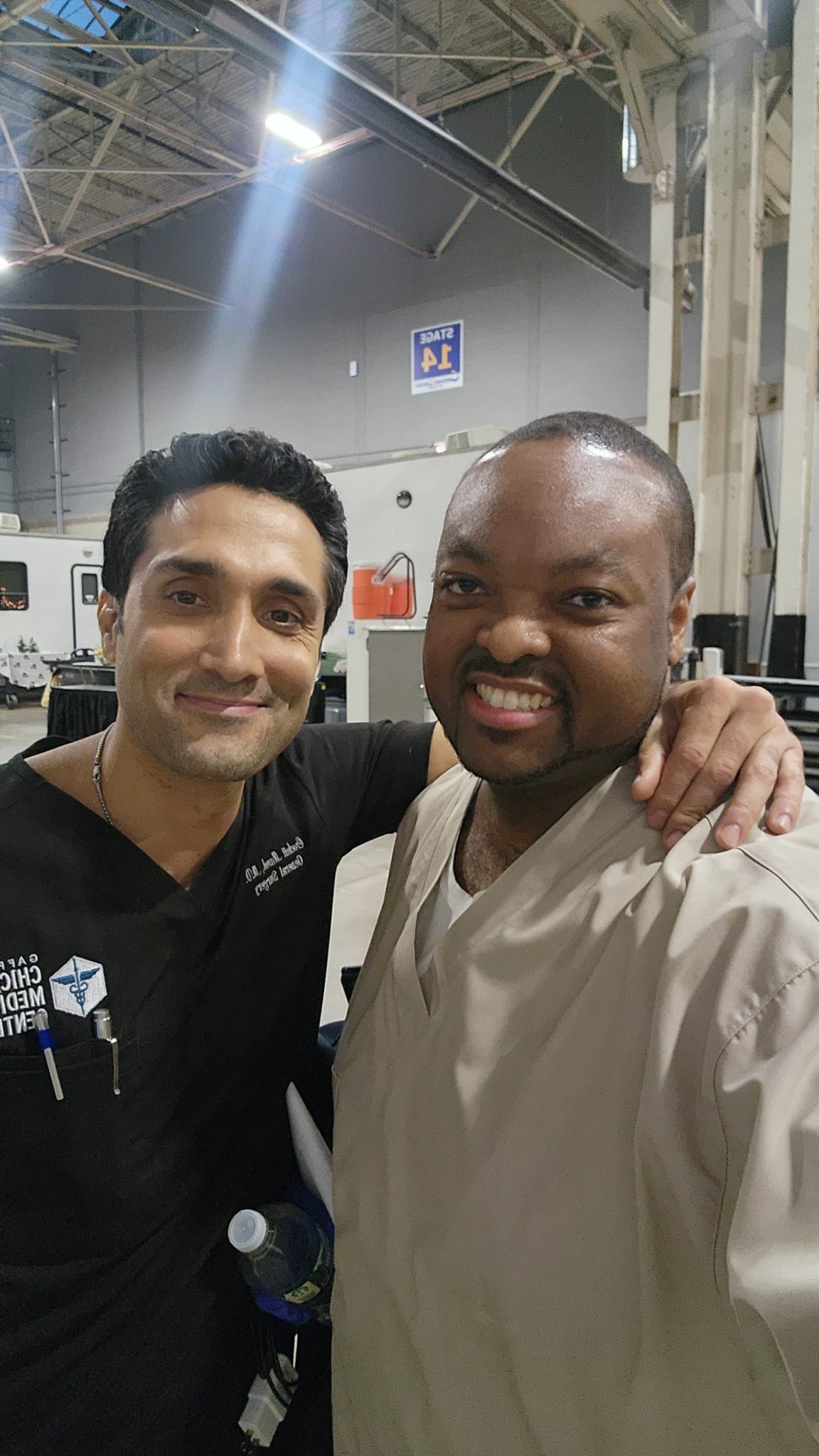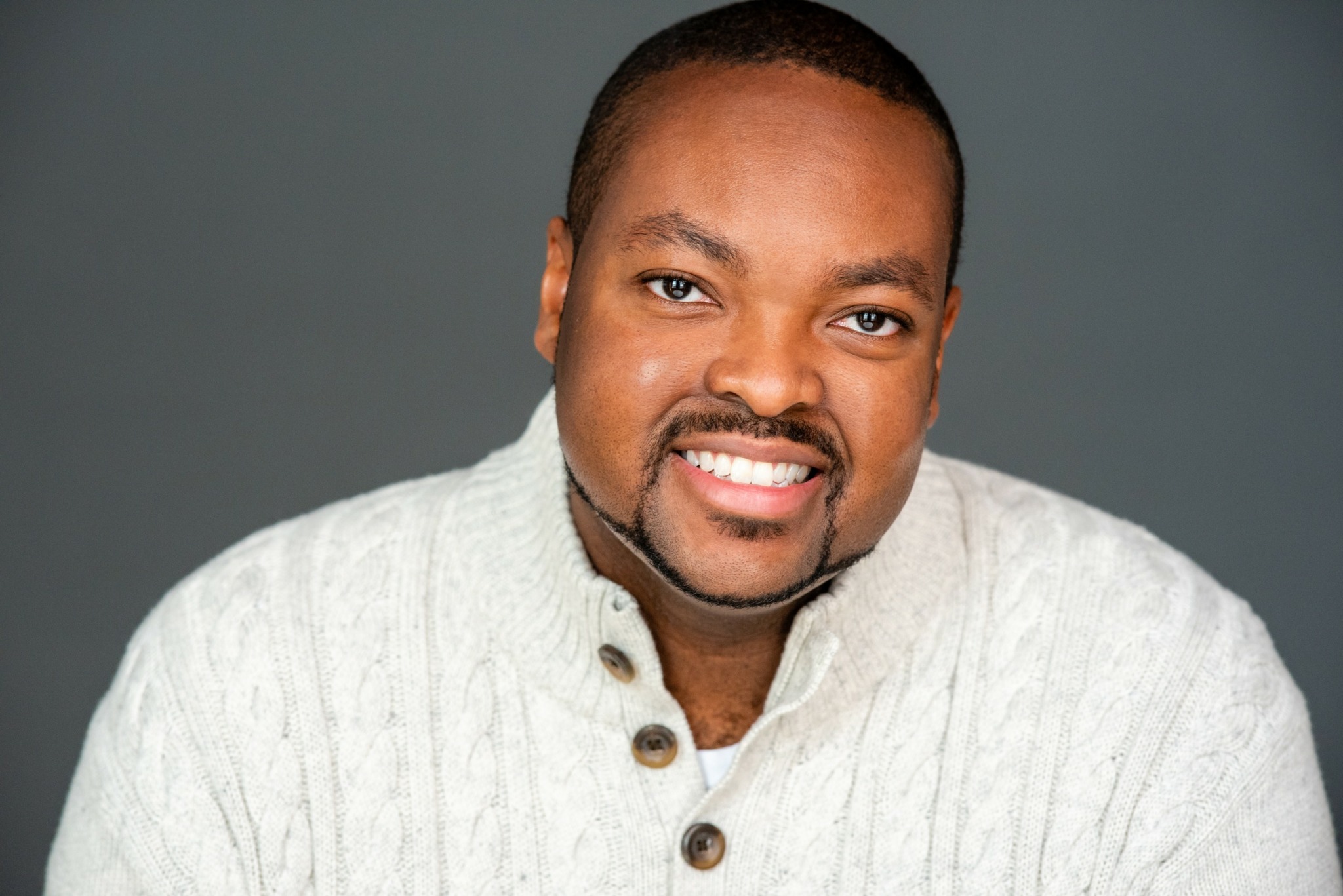We caught up with the brilliant and insightful Herbert Harper Jr a few weeks ago and have shared our conversation below.
Hi Herbert, thanks for joining us today. We’d love to hear about when you first realized that you wanted to pursue a creative path professionally.
I grew up an only child in a household where music, movies, and TV shows were always being played. If my mom didn’t blast a greatest hits album by Patti LaBelle, Janet Jackson’s “Design of a Decade: 1986-1996,” or music by any other famous artist who came up between the 1960s and 1990s (how she woke me up for school some days), then I would watch whatever movie was on TV or my favorite TV shows.
My father became ill shortly after he and my mom got married, so he stayed at home to take care of me up until his passing when I was 7 while my mom became the main breadwinner of the household. When my dad was asleep and my mom was at work or out running errands, I would re-enact scenes and sequences from my favorite musicals. In my earlier years, if I didn’t have the TV on The Disney Channel or WTTW to watch “Sesame Street” or “Barney,” then it was set to VH-1 (back when mostly music videos were played), so I could watch my favorite artists, learn their singing techniques, and pretend for moments at a time that I was Michael Jackson.
Entertainment was an escape for me. It taught me lessons and told stories that textbooks didn’t. It showed me what was possible. It took my mind off of whatever troubles I had or simply let me know that I wasn’t alone in having certain experiences. It was my happy place.
Unfortunately, I didn’t have a lot of opportunities to participate in performing arts growing up. Plus, it was instilled in me as a kid to get the best grades I could, so I could get a full-ride to college since no one in my family could afford to send me to school when the time came. Also, factor in that I was a bit shy when it came to performing, especially singing solo. I participated in school and church choirs sporadically when I could in elementary and high school; however, I did more public speaking, giving presentations in classrooms, assemblies, and even my graduations.
When I did get a full-ride to college, I decided that college would be where I did more of what I wanted. I joined a theatre troupe, did some shows, joined a few other performing arts groups, and took several theatre, music, and dance courses. When I wasn’t hired full-time after completing two summer internships at a top PR firm, I decided to pursue a career in entertainment. I thought, “It’s either now or never.” If I had to work and deal with issues in the workforce, then at least let these issues be related to something I truly love. The rest is history, as they say.

Herbert, love having you share your insights with us. Before we ask you more questions, maybe you can take a moment to introduce yourself to our readers who might have missed our earlier conversations?
I am an actor, caregiver, son, grandson, nephew, cousin, devoted friend, and avid television/film watcher and music collector. I was born and raised in Chicago (Southside!) and attended the University of Illinois at Urbana-Champaign on numerous scholarships and grants, including one awarded by The Posse Foundation, which is a four-year, full-tuition leadership scholarship. I have acted in various shorts, independent films, feature films, and web series, including “For Better” (Nominated for 11 awards and recipient of Best Web and New Media at the 2019 Indie Short Fest; Official selection for the Kaleidoscope LGBTQ+ Film Festival), “The Comedy Club” (Official selection for the Shawnee Shorts Midwestern Film Festival, the Portland Comedy Film Festival, and the Austin Micro Short Film Festival), “Pointe Work” (Official selection of the Reel East Texas Film Festival), Spike Lee’s “Chi-Raq,” and “Chicago Med” on NBC.
I got into acting professionally after college by doing background/extra work (and later, more stand-in work) on TV shows and movies that film here in Chicago as many actors have done. When I decided to pursue acting professionally, I sought the advice from friends who had been professional actors for years at that point (shoutout to Jessica Turner and Brian Keys!). A friend of mine, Loy Webb, who’s a phenomenal playwright, television writer, and lawyer, told me about her experience doing background work in the film, “Get on Up,” thought it would be a good starting point for me, and showed me how to submit for jobs. Working as an extra and stand-in not only allowed me to get my foot in the door, but it also taught me small, but very valuable pieces of information that I didn’t have the luxury of getting while in college because I was not a theatre or acting major and didn’t have access to certain courses. When I started booking roles in independent films, short films, and web series, directors loved me because they wouldn’t have to tell me what to do; I was able to apply what I learned while being on various sets to my own performances.
Based on what I’ve been told by those I’ve worked with and experiences I’ve had, I believe my strong work ethic and positive demeanor sets me apart from others. I always show up on time, prepared, and willing to collaborate or give whatever is needed. I’m not one to complain and people enjoy being around me as I’m very personable. I’ve gotten a lot of work, not just because someone enjoyed my talent and/or felt I was qualified to do a job, but also because I was easy and cool to work with. I’m very grateful to continue to have those experiences.
Out of everything I’ve done, I am most proud of being able to pursue a career doing what I love and being able to do what some thought I would never do. Along with that, I am also proud of being able to inspire those next to me and those who look up to me.

Can you share a story from your journey that illustrates your resilience?
My mother was originally the family caregiver. She worked in Medical Records Administration and Coding for much of her life all while looking after various family members, family friends, and extended family, maintaining a household, raising me, and even pursuing higher education at times (she earned two masters degrees). She was the go-to person for handling all medical or legal matters. In 2016, she suffered a stroke and became paralyzed on one side of her body. For the next few years, until her passing on Christmas Eve 2020, she stayed in a nursing home. Upon her stroke, I had to step into her shoes as the family caregiver (at one point, I was looking after four relatives, including my mother) all while working on set anywhere between 40-60 hours a week, taking on her financial obligations as well as my own on a limited income, and pursuing a career as an actor that not everyone supported, especially given the circumstances. Throw in the ending of a friendship, a relationship that, to put it mildly, wasn’t the best in the long run, three car accidents (none of which were my fault), and a few more of life’s curveballs as well. At one of my lowest points, I was angry, frustrated, depressed, and spent the majority of one year feeling like someone had taken a shotgun and blew a hole through my chest despite having to put on a smile and show up for others as well as myself.
Even though, I was juggling more than the average clown would in a circus act, I still never lost sight of what was important to me. I never lost my faith. I never gave up on acting even though my circumstances and even outside voices told me otherwise. Over time and with God’s grace, I still managed to get an acting coach who I still work with today (shoutout to Jossie Harris-Thacker!), book roles in independent projects, sign with agents, and eventually book an episode of “Chicago Med” on NBC, my first co-star in a major production.

Is there something you think non-creatives will struggle to understand about your journey as a creative?
There are many things that people who aren’t in the entertainment industry (or aren’t creatives or even entrepreneurs) don’t understand. We can’t just “call Tyler Perry” or any other famous writer/director when we aren’t working. Unless we’re signed on to do more long-term work with a production, we don’t know when the next gig will come. We don’t always have a set number of hours we work every week or even every day. Everything isn’t filmed in real time as you see it in the finished product; we have to do take after take and do the same scene from various angles (it can take hours just to do one scene depending on its nature and what’s involved). Lastly, there’s a lot of rejection. People who aren’t creatives might experience a lot of rejection when it comes to regular 9-5 jobs, in their personal lives, etc., but imagine facing that to the tenth power. That’s what creatives (especially those working in the arts and in entertainment) face on a regular basis. So it doesn’t help matters any when we don’t get support from our communities that are supposed to be there to encourage us and be our safe place. The bottom line is it takes a special kind of person to do what we do. One must have true grit and extremely thick skin, and most importantly, one must truly love what they do in order to do it as a career.
Contact Info:
- Website: http://www.herbertharperjr.com
- Instagram: HerbertHarperJr
- Facebook: Herbert Harper, Jr.
- Linkedin: https://www.linkedin.com/in/herbert-harper-jr-562a5a39

Image Credits
Brian McConkey
Kym Stagg
Herbert Harper, Jr.


